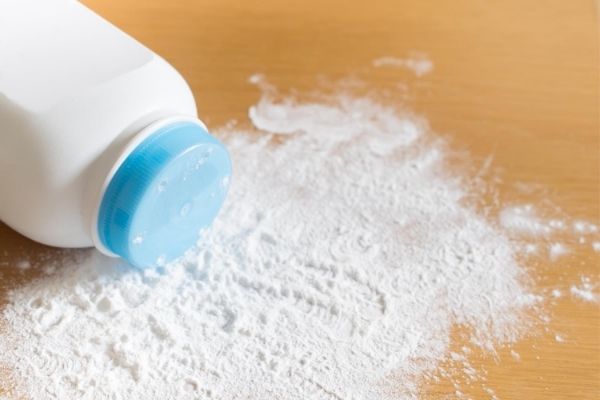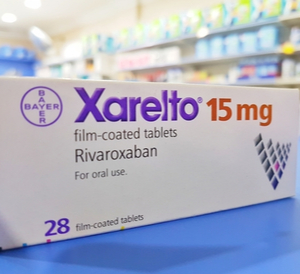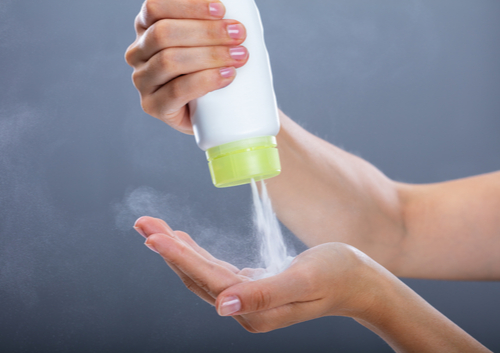We know how personal, business, and property damage can disrupt your world. You suddenly have to handle the physical, emotional, mental, and financial stressors resulting from the incident. And, if you were wronged or harmed by another party, there may be legal ramifications to sort through.
Finding an attorney to be in your corner is valuable, as long as they are the right advocate for you. If you don’t know where or how to begin, follow our 10 steps below. We at Huber Thomas Law want to help simplify this overwhelming process for you.
1. Determine if it’s the right time to hire an attorney.

If you have recently been harmed by the negligence or carelessness of another, it may be time to seek the support of an attorney. It’s important to begin the process of hiring an attorney as soon as possible, giving your legal team ample time to protect your best interests.
When the following events occur, be sure to get your search started immediately.
- Physical injury due to negligence, including vehicle accidents or slip and fall
- Wrongful actions against your business
- Injury due to a product’s design, manufacturing, or label defect
- Property damage following a natural disaster
2. Decide what type of attorney you need.
Many attorneys specialize in a specific type of law, whether through a certification or a long history in a specific practice area. Deep knowledge and experience set clients up for better case success. There are many attorney specialties, including estate planning, intellectual property, and personal injury, to name a few. Below are a few specific cases and the type of attorney needed for each.
Physical Injury Due to Negligence
If you were injured in an automobile, rideshare, trucking, motorcycle, bicycle, pedestrian, or boating accident, you need a personal injury attorney. You will also need to seek a personal injury attorney if you’ve experienced a slip and fall on someone else’s property.
Wrongful Actions Against Your Business
If you and your business have been financially harmed through the negligent or fraudulent acts of an individual or another business, you must hire an attorney who deals with business torts. These actions could include contract interference, restraint of trade, theft of trade secrets, misrepresentation, trade libel, or defamation.
Injury Due to a Product’s Design, Manufacturing, or Label Defect
When a product has caused you harm, you must hire a product liability attorney quickly. Injury caused by a product could be due to a design, manufacturing, or label defect. A product liability attorney will help you navigate the complexities of these cases and hold companies accountable for any damage.
Property Damage Following a Natural Disaster
In the Gulf South, we are all too familiar with the profound losses natural disasters can cause. There are ways to recover if you have a property damage attorney in your corner. A property damage attorney can help you navigate insurance claims after the flood, hurricane, fire, and tornado damage. Hiring a property damage attorney can also be advantageous in the event of willful damage, including graffiti and arson.
3. Research attorneys in New Orleans.
Once you understand what type of attorney you need, it’s time to do your due diligence before hiring one. By searching “personal injury attorneys near me” or “property damage attorney New Orleans” online via Google, you’ll find listings and websites that match your search. Take a glimpse at the websites of the firms and attorneys listed to get an idea of whether they match the type of assistance you need.
4. Evaluate attorney experience.
Many attorneys and firms include their “resumé” of experience on their websites. However, experience is about more than where the attorneys went to law school. Review each firm's history and success stories to get an idea of their level of experience in your specific area of need.
5. Read attorney reviews and ask around.
A firm’s reputation is an important factor to consider when choosing an attorney to hire. By asking personal connections, such as family and friends, and reading online reviews, you can get a good idea of their trustworthiness, integrity, and success rate. Community reviews can be found in places like Facebook business pages and Google listings.
6. Schedule more than one attorney consultation.
To be your best advocate, and find the best advocate for you, scheduling more than one consultation with a list of attorneys is key. This is a time when you can ask your potential attorney all of your most pressing questions before hiring them. Many firms provide free consultations for this reason, allowing potential clients to fully evaluate their firm’s approach, fee structure, and compatibility.
7. Prepare a list of questions to ask each attorney.
Before your consultations, prepare a list of questions that you would like to ask each attorney. Asking each firm the same set of questions will give you an idea of their comfortability with your type of case, compatibility with you as a client, and communication style in educating you about your case. Common questions include:
- What is your experience with my type of case?
- How many cases have you handled in [insert type of law]?
- What have been some of your case outcomes?
- What is your typical approach or process?
- Do you have trial experience?
- Can you send me references from past clients?
- What is your current assessment of my case?
- How will you keep me updated on my case?
- What outcome do you expect for my case?
- When do you expect this case to be resolved?
- What is your fee structure?
- Are there any additional costs I should be mindful of?
No question is off the table when it comes to finding the right attorney for you. A trustworthy attorney will want to make sure you are equipped with knowledge regarding your case.
8. Compare attorney fee structures and affordability.
Financial affordability should be considered before hiring an attorney. Fee structures differ depending on the attorney or firm. Some may charge a flat fee or by the hour, and some will charge a fee based on a percentage of the winnings in your case.
Payment By the Hour
Some attorneys charge their clients based on the number of hours worked. These hours accumulate through client meetings, case research, document drafting and reviewing, and time spent in court. The hours spent on these activities will then be multiplied by the attorney’s hourly rate and billed to you on a predetermined schedule. Some attorneys may even charge a retainer fee that can be withdrawn as they bill you for services.
When working with an attorney who has an hourly fee, be sure to review the itemized bill carefully for any discrepancies. This bill will contain a total of the hours spent, a description of the work done, and the hourly rate charge.
Payment Through Flat Fee
For uncomplicated matters, some attorneys charge a flat fee. This flat fee will cover the service and the specific activities it requires, no matter how long the case takes. You’ll receive an agreement with all service and flat fee details and be expected to pay this flat fee upfront. You will not be charged additional fees unless you request additional services, the scope of work shifts, or unexpected issues arise. In the event of these circumstances, your attorney will revise the agreement and require your approval before pursuing additional services.
Payment Through Contingency
Of all fee structures, contingency is the most cost-effective for the client. The attorney will not charge you an hourly or flat fee, but they will charge you based on the case outcome. This means your attorney will only get paid if they are successful in recovering money for you. If the case is not successful, you are not responsible for paying your attorney.
Typical contingency fees are 33.33-40% of recovered compensation and will be agreed upon before the work begins. Your contract will outline all of the contingency terms, including how the attorney fee is calculated and any additional expenses that may be deducted. These additional expenses may include fees for depositions, witnesses, or filing. Please note that a contingency fee is not permissible in every type of case.
9. Choose the attorney that is the most compatible.
If you’ve found attorneys who have the right specialty, experience, reputation, and fee structure, but still can’t decide whom to choose, go with your gut. Ask yourself if the attorney made you feel seen, heard, and reassured. Their resumé and reputation mean nothing if they cannot treat you with the dignity and respect you deserve. An attorney who is truly in your corner will be a fierce advocate who listens to your needs.
10. Understand your Representation Agreement.
When you’ve made your choice, be sure to fully understand the agreement between you and your attorney. All of the terms of your relationship will be documented in an easy-to-understand, one-page contract, your Representation Agreement, that will outline all of these topics.
Scope of Work
Your engagement letter will detail the services your attorney will provide and stipulate any services or activities that may be deemed “out of scope.”
Payment Terms
Whether hourly, flat, or based on contingency, your attorney’s fee structure, including hourly rates and/or contingency percentages, will be outlined in the engagement letter. The payment schedule will also be outlined and agreed upon.
Client Responsibilities
Your engagement letter will also express what is expected of you in working toward a successful case. You will be required to cooperate fully, including supplying documents and information that will support your case.
Confidentiality Statement
Your attorney should reassure you that your case will be kept confidential. However, there may be cases in which information must be disclosed. The parameters regarding case confidentiality will be detailed in the engagement letter.
Termination of Contract
If either party needs to end the case, a termination clause will outline guidance for doing so. This clause will specify how the contract may be terminated and the fees associated with termination.
Add Huber Thomas to Your Attorney Search
The process of finding an experienced attorney you can trust can be overwhelming. At Huber Thomas Law, we want potential and current clients to be equipped with knowledge and confidence. This sense of trust is how we’ve recovered millions of dollars for our clients within our practice specialties:
- Personal Injury
- Business Torts
- Products Liability
- Property Damage
We take the stress off of you through clear communication, informed guidance, swift action, and personal attention. Contact Huber Thomas Law when you’re ready to work with a tireless advocate for your case.
After decades of litigation and thousands of consumer complaints, the Johnson and Johnson baby powder lawsuit has finally reached a tipping point. The product is now out of production and the company will pay $2.1 billion to individuals who claim the talc-based product caused their ovarian cancer. Read on for details regarding the ongoing case and find out how Huber Thomas & Marcelle can assist in similar cases.
J&J loses $417 million in California’s first talc verdict case
 In the 2017 case of Echeverria v. Johnson & Johnson, the company was ordered by a Los Angeles jury to pay $417 million to 62-year-old Eva Echeverria.
In the 2017 case of Echeverria v. Johnson & Johnson, the company was ordered by a Los Angeles jury to pay $417 million to 62-year-old Eva Echeverria.
Echeverria started using Johnson and Johnson’s talc powder products when she was 11 and was diagnosed with ovarian cancer in 2007. According to Echeverria’s attorneys, the lawsuit stemmed from the company's alleged ignoring of studies that linked the baby powder and Shower to Shower talc products to ovarian cancer. Further, they maintain that the company failed to warn customers about the risk.
Today, Johnson and Johnson continues to claim that these allegations do not hold weight when it comes to sufficient scientific evidence. A New Jersey state court tossed out two similar cases set for trial after the judge said that evidence linking talc to ovarian cancer was inadequate. This was a temporary boost in the messaging Johnson and Johnson had attempted to push in fighting related lawsuits.
However, in the end, the $417 million verdict in Los Angeles included $347 million in punitive damages and $70 million in compensatory damages. What’s more, it marked the beginning of clients getting justice in their own Johnson and Johnson lawsuit matters. The trial in Los Angeles was the first before a state jury outside of Missouri. That’s where the company lost four out of five trials over two years, resulting in verdicts as high as $110 million.
Unfortunately, Echeverria passed away shortly after the trial came to an end.
Updates on the Johnson and Johnson baby powder lawsuit
While there was sufficient evidence to uphold the jury’s finding in Echeverria v. Johnson & Johnson, an appeals court granted the company a new trial in 2019. The Los Angeles-based court cited conflicting evidence about the baby powder’s cancer links.
According to California Superior Court Judge Maren Nelson, Johnson and Johnson could not be held liable for failure to warn, only the subsidiary that manufactured the product would have the duty of disclosing any and all risks. The appeals court also made claims that the evidence failed to support a finding of malice, which is a legal requirement for cases involving punitive damages.
Regardless of her death, Echeverria’s attorney has vowed to follow through and continue the fight, and he’s not alone. In June 2020, a Missouri appeals court ordered Johnson and Johnson to pay $2.1 billion to more than two dozen women.
Much like Echeverria’s case, Johnson and Johnson appealed the verdict, requesting the court throw out the decision. Fortunately, the court declined, citing “significant reprehensibility” in the company’s conduct.
Evidence from as far back as the 1960s demonstrated that the company’s talcum products contained asbestos, a known carcinogen. The ruling stated:
“A reasonable inference from all this evidence is that, motivated by profits, defendants disregarded the safety of consumers despite their knowledge the talc in their products caused ovarian cancer.”
The plaintiffs “showed clear and convincing evidence defendants engaged in conduct that was outrageous because of evil motive or reckless indifference,” the court said.
The attorney representing the women noted that several of them passed away before the ruling, as well as immediately after. This has only furthered the mission of attorneys across the U.S. to seek justice for their clients. For those who have suffered from cancer as a result of using these products, each Johnson and Johnson baby powder lawsuit is a critical step in the right direction
Lawsuits lead to a big win for consumers
While different lawsuits for damages are still underway in various states, there has been another recent victory for consumers. In May 2020, Johnson and Johnson announced the discontinuation of talc-based baby powder in the U.S. and Canada.
The company still maintains the position that these lawsuits are the result of confusion and misinformation. However, winding down the commercialization of the baby powder has begun. Existing inventory on the shelves will only remain until it runs out, but production in the U.S. and Canada has stopped.
For consumers, this is exciting news. It demonstrates the important role plaintiffs play in holding companies accountable. This type of victory ensures the safety of adults and children alike as it removes a harmful product from the shelves. There is the hope that production will end worldwide, thus removing these products from shelves globally.
Were you affected?
 At Huber Thomas & Marcelle, we have years of experience dealing with matters of product liability and harmful products. We pride ourselves on being tireless advocates for our clients when they deserve support. It’s always our goal to help you reach an outcome that will help you move forward with your life.
At Huber Thomas & Marcelle, we have years of experience dealing with matters of product liability and harmful products. We pride ourselves on being tireless advocates for our clients when they deserve support. It’s always our goal to help you reach an outcome that will help you move forward with your life.
While we were not directly involved in the original Johnson and Johnson baby powder lawsuit, we can assist in a search for class-action lawsuits that may be available to you. Even as related cases come to a close, there are still more victories to be had.
If you have cancer and believe it may be tied to the use of the products discussed here, you may have grounds for filing a Johnson and Johnson lawsuit. Contact us today to learn more.
Our approach to product liability cases in healthcare
The Johnson and Johnson talc lawsuit is particularly noteworthy, but there are many other healthcare and personal care companies facing similar claims of unsafe products.
At Huber Thomas & Marcelle, we fight for victims who have been harmed by defective medical devices, dangerous drugs, and other unsafe products. We're prepared to take on large companies by working with a team of world-class experts. Our goal is to ensure you receive the compensation you deserve and that those who have done harm are held accountable.
We represent clients in the following types of cases.
Unsafe product claims
Unsafe product claims can involve automobiles, watercraft, children’s toys, child safety seats, industrial machinery, recreational products, tires, safety or sporting equipment, and more. When manufacturing defects, design flaws, and lack of proper warning labels and information lead to injury or harm, compensation may be in order.
For example, Huber Thomas & Marcelle represented hundreds of military service members against 3M for providing allegedly defective earplugs. These claims arise from the fact that the 3M earplugs, distributed as the sole earplug to U.S. military service members between 2003 and 2015, were too short for proper insertion into the ears, putting users at risk for permanent hearing loss, hearing impairment, and tinnitus.
In July 2018, the Department of Justice announced that 3M had agreed to pay $9.1 million to resolve allegations that it knowingly sold the earplugs without disclosing defects that hampered their effectiveness.
If you are a service member who was diagnosed with hearing loss and/or tinnitus after serving in the U.S. military between 2003 and 2015, we encourage you to contact an experienced personal injury lawyer at Huber Thomas & Marcelle today. Learn more about this case here.
Pharmaceutical liability
If a drug is irresponsibly marketed, insufficiently tested, or incorrectly prescribed, the outcome can be devastating. The repercussions of dangerous drugs and practices can include birth defects, illness, and even death.
Admittedly, all medications come with a risk of side effects. But one Yale-led study found that “Nearly one out of every three drugs approved by the Food and Drug Administration (FDA) has a new safety issue detected in the years after approval.”
Patients expect prescription medication companies to thoroughly test drugs before they go on the market (and clearly explain their risks). When this doesn't happen, patients may be entitled to compensation from drug companies. This can help cover long-term costs related to:
- Ongoing medical care
- Specialized medical equipment
- Surgeries
- Lost wages and productivity
- Emotional and mental health challenges
At Huber Thomas & Marcelle, we take these cases seriously because they represent a breach of the trust we hold for our medical professionals. We have advanced experience working with prescription drug injury cases and can advise you on your legal rights.
Defective medical devices
While mistakes happen, manufacturers are obligated to test medical devices extensively before they become a source of serious injury to patients.
Product defects are often the result of rushing a product to market without careful product design and testing. In some cases, individual components are the source of the deficiency. Any device can cause harm, but certain types lead to more adverse events than others.
The Expert Institute found 20 products that lead to the most adverse events. These include:
- Insulin pumps
- Blood glucose tests
- Pacemaker electrodes
- Coronary stents
- Surgical mesh
- Knee prostheses
- Hip prostheses
If you've been harmed by a company's failure to properly test a product, you could be entitled to compensation. Our team of defective medical device lawyers is committed to helping you understand the complexities of bringing a case like this to court.
We’re here to help
When faced with pursuing litigation, you need a team you can trust.
At Huber Thomas & Marcelle, we pride ourselves on being tireless advocates for our clients. We make it our mission to clearly explain everything you need to know. We're always available if you have questions. In fact, we return most calls within 24 hours. With our firm on your side, you can expect help from a team of attorneys with a proven record of success. And, in many cases, you don't pay anything unless we win your case.
You can find more information about our practice areas here, or read answers to some of our most frequently asked questions here. In addition to Louisiana, members of our team are licensed to practice in Mississippi, Texas, Washington D.C., and New York. If you’d like to discuss the details of your case, please contact us for a free consultation.
Originally posted on August 22, 2017.
A federal jury has cleared Bayer AG and Johnson & Johnson of liability in the third case to go to trial out of thousands of lawsuits claiming the drugmakers' blood thinner Xarelto led to severe internal bleeding.
The verdict in U.S. District Court in Jackson, Mississippi, is a blow to thousands of patients with similar allegations against the drugmaker. The jury returned the verdict after just four hours of deliberation.
The companies also won the previous two trials on claims of risks from Xarelto.
 In the latest case, plaintiff Dora Mingo claimed she suffered acute gastrointestinal bleeding after she was treated with Xarelto for a month in 2015 to prevent blood clotting following an operation.
In the latest case, plaintiff Dora Mingo claimed she suffered acute gastrointestinal bleeding after she was treated with Xarelto for a month in 2015 to prevent blood clotting following an operation.
Mingo's case is among an estimated 18,600 lawsuits in federal and state courts related to Xarelto. The first three cases were chosen to be tried as so-called bellwethers to help both sides assess similar claims, define legal strategies, damages ranges and settlement options.
Both Johnson & Johnson and Bayer said they would continue to defend against claims related to Xarelto.
"We will continue to defend against the allegations made in this litigation," J&J's Janssen Pharmaceuticals unit said in a statement.
Bayer in a statement, said, "Bayer stands behind the safety and efficacy of Xarelto and will continue to vigorously defend it."
Andy Birchfield, one of Mingo's lawyers, in a statement said health complications suffered by thousands of patients could have been avoided if physicians were properly instructed about the risks.
"We will continue fighting for the thousands of innocent victims injured or killed by this drug," Birchfield said.
Xarelto is Bayer's best-selling drug and in 2016 contributed 2.9 billion euros ($3.41 billion) in revenues to the German group's pharmaceutical business.
J&J in 2016 reported $2.2 billion in revenues from Xarelto.
The U.S. Food and Drug Administration approved Xarelto in 2011. The drug is prescribed for people with a common heart rhythm disorder known as atrial fibrillation and to treat and reduce the risk of deep vein thrombosis and pulmonary embolisms.
Original story by Tina Bellon of Reuters.
If you’d like to discuss the details of your medical liability case or other business issues, please contact us to set up a consultation.
The U.S. Food and Drug Administration said it will require a new “black box warning” label for the Essure birth control, an implantable permanent contraceptive device. A black box warning in the labeling of products is “designed to call attention to serious or life-threatening risks,” according to the FDA website.
Monday’s announcement comes after more than 5,000 women filed grievances with the FDA between November 2002 and May 2015, complaining of unintended pregnancies, miscarriages, stillbirths, and severe pain and bleeding after an Essure implantation.
Approved by the FDA in 2002, Essure birth control is a permanent form of birth control in which a coil is non-surgically placed into a woman’s fallopian tubes. Scar tissue is supposed to form around the device to prevent sperm from reaching eggs and fertilizing them, thus preventing pregnancy.
The FDA also called upon Bayer, which makes and markets Essure, to conduct surveillance that will assess “risks of the device in a real-world environment,” and said the agency will use the results of that study to “determine what, if any, further actions related to Essure are needed to protect public health.” The company is required to follow more than 2,000 women for at least three years. The study will not be limited to women being implanted with Essure but will be comparing women with Essure to women who select other methods of sterilization, such as surgery.
The FDA expects Bayer to submit a study protocol within 30 days and the company is required by law to begin the study within 15 months, according to Dr. William Maisel, FDA deputy director for science and chief scientist at the agency’s Center for Devices and Radiological Health. If Bayer does not, the FDA can declare the device misbranded.
The company will also be required to submit interim reports on the study including data and analysis. The FDA expects the first such report will be available within a few months of when the trial begins.
When reached for comment, Bayer provided the following response: “Essure is an important permanent birth control option with a positive benefit-risk profile. Bayer will continue to work closely with the FDA to support the continued safe, effective, and appropriate use of Essure.”
‘The FDA truly failed these women’
 Reaction to the FDA announcement was swift and uncomplimentary.
Reaction to the FDA announcement was swift and uncomplimentary.
“We are outraged that it appears as if the FDA is going to leave Essure on the market,” said Essure Problems, a support group for women who say they have been damaged by the device. “Take the device OFF the market and revoke PMA [premarket approval]. Do not continue to allow more women to be harmed.”
“It’s unbelievable that it took the FDA since September to make just two recommendations with no enforcement measures and ask the manufacturer to perform another study while leaving Essure on the market,” said Rep. Mike Fitzpatrick, a Republican from Pennsylvania who has called for the FDA to revoke its approval of Essure. “It’s been done. The evidence is all there: Tens of thousands of injured women and hundreds of fetal deaths.”
“I feel as if the FDA truly failed these women,” said Madris Tomes, a former FDA contractor whose business, Device Events, analyzes FDA public data. “My hope was that they would recommend a recall. How can we trust the FDA to make good decisions regarding safe and effective devices?”
Last week, Fitzpatrick and Tomes provided the FDA with raw data showing a total of 303 fetal deaths among women who used the device. The FDA said Monday that it put the number at 294. Previously the agency said that number was only five.
Tomes said she found the additional cases by using a different method of analysis than the FDA.
“Most of the story of what happened and all the side effects, those are going to be in the narrative,” Tomes said. “So we searched for keywords in that narrative that women and their doctors would use, such as fetal death, miscarriage, stillbirth, stillborn and ectopic pregnancies.”
“I actually think the 303 number is conservative,” Tomes added, “because some of these women have had multiple miscarriages, they’ve had multiple pregnancies, after confirmation, but I only counted them once.”
Fitzpatrick said, “I believe Congress must.”
He vowed to present a number of legislative actions to the House and Senate, including working to block government agencies, such as the U.S. Department of Veterans Affairs, from purchasing the device; introducing new legislation that would remove “blanket civil liability protections” that keep women from suing Bayer and seeking passage of an act that would revoke Essure’s FDA approval.
In its press release, the group Essure Problems also called for Congress to act. “While we continue to encourage women to file their adverse event reports with the FDA, our focus will be on Congress and the E-Free Act. We are disappointed but not surprised the FDA has once again chosen to side with industry rather than protect patients of a failed medical device.”
“The FDA continues to believe that this should remain available,” Maisel of the FDA said Monday.
FDA requires new checklist
In addition to the black box warning, the FDA is requiring a patient decision checklist to be signed by patients and doctors before the device is implanted. This will include agreeing to a test three months after implantation to make sure the device is properly in place and functioning as intended. A checkup at that time is already recommended by the device maker, Bayer.
In the past, Bayer has said the device is 99% effective at permanently preventing pregnancy. It blames the unintended pregnancies on patient error, suggesting patients may have been lax in following up with their doctors for three-month checkups to make sure the device was working, or lax at using backup birth control during the first three months.
In September, the agency held a hearing in which some of those who filed complaints described what they went through. The FDA also heard from Bayer and health care providers about the existing body of safety data for Essure birth control.
On a call with reporters Monday, Maisel said the agency review of all available information on the device, which was conducted to support Monday’s announcement, also assessed possible clinical trial misconduct in the original clinical trial data. However, he said no misconduct was found and any allegations of that are unfounded.
The FDA said its actions will increase understanding of the risks associated with the device for patients and doctors.
“They also reflect our recognition that more rigorous research is needed to better understand if certain women are at heightened risk of complications,” Maisel said.
The new warning label requirement announced Monday has a 60-day comment period to incorporate feedback from patients and the industry before finalizing it and adding it to the packaging.
Original story by CNN.
If you’d like to discuss the details of your case with a personal injury lawyer, please contact us to set up a consultation.
Jacqueline Fox passed away in the fall, but her voice recently came alive in a St. Louis courtroom.
In an audio deposition, the Birmingham, Ala., native who died at age 62 recounted 35 years of using Johnson & Johnson products containing talcum powder, including the manufacturing giant’s trademark baby powder and its Shower to Shower body powder. Fox had used them for feminine hygiene, and she believed they were what ultimately killed her.
More than three years ago, she was diagnosed with ovarian cancer that proved fatal. Fox was among more than 1,200 women from across the country who were suing Johnson & Johnson for failing to warn consumers of the dangers associated with talc, the mineral used in baby powder.
On Monday, her case became the first in which monetary compensation was awarded.
A Missouri jury has ordered Johnson & Johnson to pay Fox’s family $72 million in actual and punitive damages. One of Fox’s lead attorneys, Jim Onder, told the St. Louis Post-Dispatch that $31 million will go to the Missouri Crime Victims’ Compensation Fund.
 The suit’s other defendant, talc producer Imerys Talc America, has not been faulted.
The suit’s other defendant, talc producer Imerys Talc America, has not been faulted.
“We have no higher responsibility than the health and safety of consumers and we are disappointed with the outcome of the trial,” Johnson & Johnson said in a statement Tuesday. “We sympathize with the plaintiff’s family but firmly believe the safety of the cosmetic talc is supported by decades of scientific evidence.”
Johnson & Johnson is expected to appeal the verdict. The award — which is made up of $10 million in compensatory damages and $62 million in punitive damages — will probably be lessened in appellate courts, Stanford University law professor Nora Freeman Engstrom told the Associated Press.
According to the St. Louis Post-Dispatch, one male juror and nine female jurors voted in Fox’s favor; two men voted against her.
One juror, 50-year-old Jerome Kendrick, told the Post-Dispatch that he was swayed by internal company memos presented at trial.
“They tried to cover up and influence the boards that regulate cosmetics,” he said, adding “They could have at least put a warning label on the box but they didn’t. They did nothing.”
One memo from a company medical consultant likened ignoring the risks associated with “hygenic” talc use and ovarian cancer to denying the link between smoking cigarettes and cancer — in other words, “denying the obvious in the face of all evidence to the contrary,” the Associated Press reported.
Another document noted that sales were declining as more people became aware of the health risks, and included strategies for making blacks and Hispanics the highest users of talcum powder, Onder said, as the Post-Dispatch reported.
Fox was African American.
The New Jersey-based company faces many more lawsuits related to talcum products it has made household names.
Marvin Salter, Fox’s son, told the AP that using Johnson & Johnson “became second nature, like brushing your teeth.”
But a routine act eventually became insidious, Fox’s attorneys argued.
A pathologist found that Fox’s ovaries were inflamed from talcum powder, which then turned into cancer.
While studies have associated regular talc use with ovarian cancer for decades, the American Cancer Society notes that there is no definitive research on whether asbestos-free talc — the kind widely used in consumer products — causes ovarian cancer:
Findings have been mixed, with some studies reporting a slightly increased risk and some reporting no increase. Many case-control studies have found a small increase in risk. But these types of studies can be biased because they often rely on a person’s memory of talc use many years earlier.
Story by Yanan Wang of the Washington Post.
If you’d like to discuss the details of your case with a personal injury lawyer, please contact us to set up a consultation.
